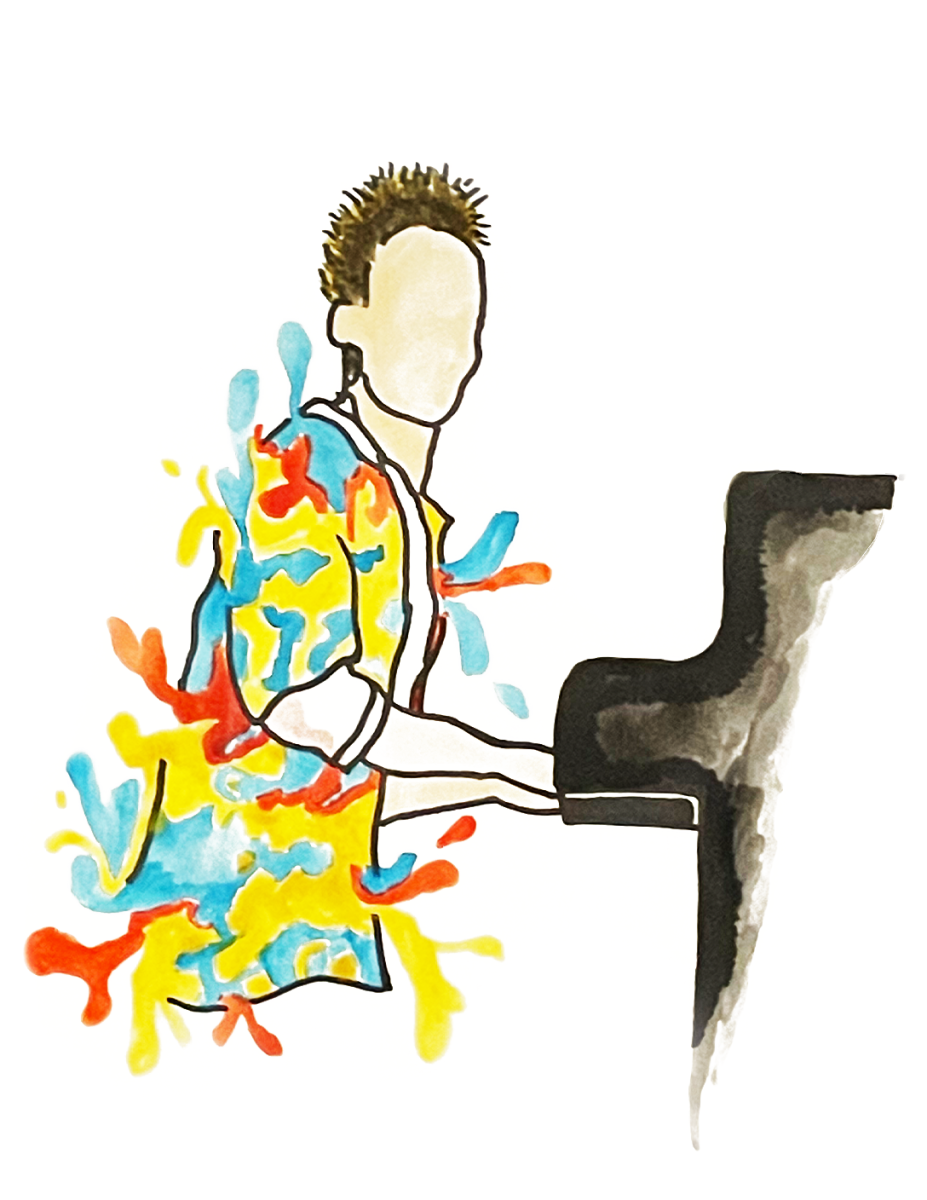I know I wasn’t the only one surprised when I read the 2024 Grammy nominations last week—and I just about jumped out of my chair when I saw the Album of the Year candidates.
You’re probably at least somewhat familiar with six of the artists nominated in this category. They are the legendary and rising female pop icons of our time: Beyoncé, Taylor Swift, and Billie Eilish are returning Grammy veterans, while Chappell Roan, Charli XCX, and Sabrina Carpenter emerged more recently with albums that sparked cultural phenomena.
I—like many others of my generation—had never heard of André 3000 before last week. His first solo album, “New Blue Sun,” is 87 minutes of largely “experimental flute music” with other instrumentation, no lyrics, and the strangest song titles I’ve ever seen. It’s fascinating.
The Album of the Year nominees certainly cover a range of styles, which brings me to the eighth and final nominated artist in this category, the epitome of musical eclecticism, Jacob Collier. He’s nominated for his genre-defying album, “Djesse Vol. 4.”
Collier has been deemed the “Mozart of Gen Z” for his vast knowledge and application of music theory. He is multi-instrumentalist, singer, composer, arranger, and producer. He’s won six Grammy awards in recent years for his instrumental, vocal, and a cappella arrangements—and was nominated for Album of the Year in 2020 for “Djesse Vol. 3.” So, despite Collier being more under-the-radar than his competition in this category, and given that the album’s predecessor was nominated four years ago, you might not think it’s that surprising that “Djesse Vol. 4” is on the ticket this year.
Do I think “Djesse Vol. 4” is going to win the Grammy? Absolutely not. Collier is not popular enough, and even his fans are conflicted about this album.
Most of Collier’s work is known for being wildly complex—for better or worse, depending on individual taste. Many critics found “Djesse Vol. 4” to be so complex that it lost emotion, with one calling it “somehow both disorienting and bland.”
I found the opposite true. Collier’s brilliance lies in the intricacies of his sound, which he carefully crafts as a principal musician, composer, and producer on every track—a unique combination in the modern music world.
As a musician myself, I am in awe of Collier’s musical choices like creative key changes and uncommon instruments. But I don’t catch 10 percent of these choices even after analyzing the music.
Collier got his start on YouTube, and he still keeps up with his followers by posting live-streamed “Logic Session Breakdowns” about individual songs. These breakdowns often run about two hours per song, as Collier highlights every track and shares stories about the process. Collier uses his knowledge of music theory to create a distinct atmosphere that goes beyond music composition. Every layer of every second is intentional. Collier places unnoticed sounds—like morse code throughout “Djesse Vol. 4”—to give the songs hidden meanings and design feel beyond sound.
The Logic sessions show Collier’s pure adoration for music and collaboration—and this is where the genius of his work comes through.
“Djesse Vol. 4” is the conclusion of a four-part “mega album” that Collier envisioned in 2017 as “a vast, collaborative album, in four chapters, colliding all forms of music I love, drenched with my most favourite musical beings from all over the world, friends and heroes alike—recorded across Earth’s many corners.”
“It was about as ambitious as I could have dreamed,” Collier said, “but I don’t remember it feeling outlandish at the time; it simply felt right. So I let it overtake my imagination, and started sketching it out.”
The name “Djesse” comes from Collier’s initials, JC, and represents a character finding his way through the world and emotion, guided by music.
The “Djesse” albums are all different genres: Vol 1 is vaguely considered jazz, 2 is classical/folk, 3 is R&B/soul, and 4 is alternative/indie/pop/jazz…just about everything. These four albums encompass a wider variety of genres than previously attempted—everything from pure classical to heavy metal, Tropipop to Bulgarian choir—and thousands of musicians.
“Djesse Vol. 4” alone features 20 languages, over 100 individual musicians and groups, and, as true to the opening track, over 100,000 voices. Yes, 100,000 audience members from his international tours whom he turned into his famous audience choirs.
“Djesse” is more than a love letter to music; it’s an ode to creativity itself. The mega album is an exploration of collaboration. It’s an experiment in “What can we make if we try to do everything?” and the result is cultural unification.





































